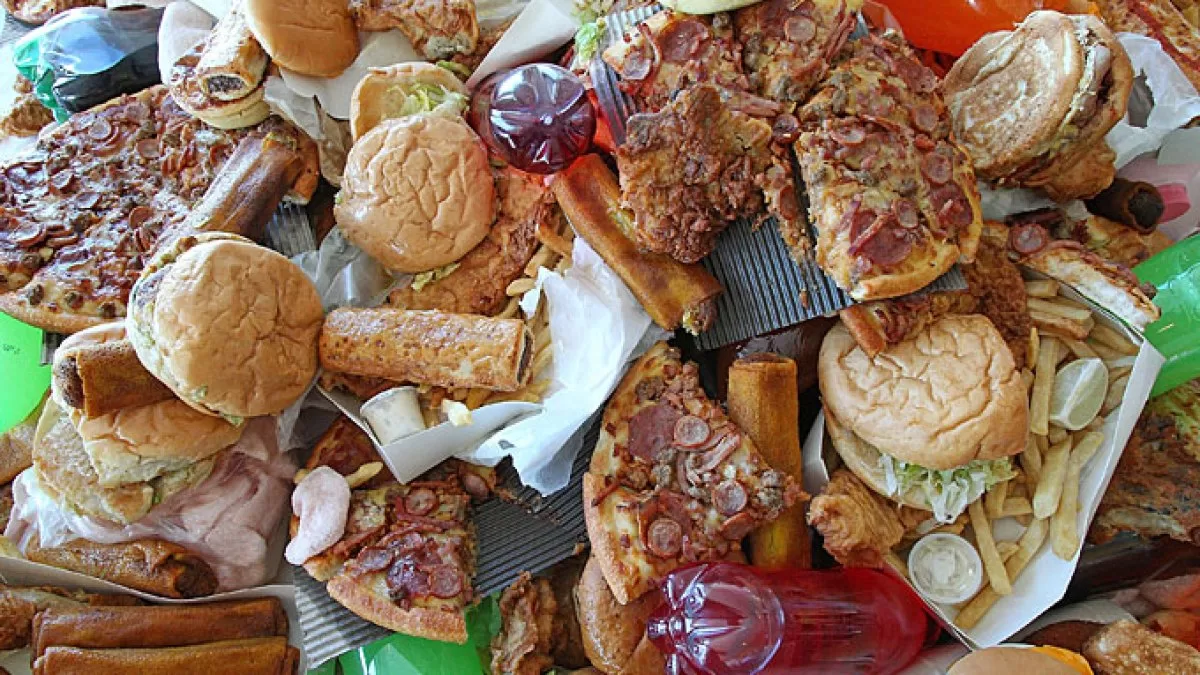Cookies. Pizza. Cake. All are delicious – but potentially deadly. In addition to their often-high sugar, salt or fat content, these foods can also contain a toxic ingredient that kills almost 300,000 people from coronary heart disease each year: industrially produced trans fat.
Invented in the early 20th century as a substitute for butter and later used to increase the shelf life of food products, industrially produced trans fat is highly hazardous to human health. There is no safe level of consumption. Fortunately, this toxic food additive can be replaced easily with healthier alternatives – there is no difference to taste or manufacturing costs, and hundreds of thousands of lives a year can be saved.
Six years ago, WHO called on countries and the food sector to eliminate industrially produced trans fat from the global food supply. At that time, only a small proportion of the world’s population – less than one in 10 people – were protected from this toxic chemical.
A new WHO report on the state of global trans fat elimination details the tremendous progress we’ve made in just the past few years. Today, 53 countries with nearly four billion people are implementing WHO-recommended best practice policies that include bans or limits on trans fat, removing this major health risk for almost half of the world’s population.
WHO has recognised five countries – Denmark, Lithuania, Poland, Saudi Arabia, and Thailand – for their world-leading efforts to become trans fat-free, having gone beyond the adoption of best-practice trans fat policies to include monitoring and enforcement frameworks that will maximise and sustain the health benefits of these policies.
However, we still have a lot of work to do. More than four billion people remain unprotected from this toxic chemical. Globally, most of the remaining deaths caused by trans fat are concentrated in just eight countries, mostly in Africa and the Asia Pacific. Implementing best practice policies in these additional countries could prevent 90 percent of the global deaths associated with this harmful ingredient – an important milestone in the fight against noncommunicable diseases.
And as trans fat restrictions increase worldwide, food manufacturers will likely dump products containing this toxic chemical that have been banned elsewhere into a dwindling number of markets without regulations.
All countries, regardless of income level, can protect their people by implementing regulations, even if trans fat levels in food are low. Trans fat elimination is a cost-effective means to tackle noncommunicable diseases and save lives, as shown by studies in Argentina, Kenya, Nigeria, the United Kingdom, the United States and the European Union which demonstrate that industrially produced trans fats can be eliminated and replaced with healthier fats or oils without changing the cost, taste or availability of food.
Countries that have implemented best practice trans fat policies can support others to do the same by sharing their experience and know-how. Food manufacturers, especially national and global conglomerates that have long profited from products containing deadly trans fat, have a responsibility to consumers to invest in healthier replacements. Advocates in the global community should continue to push for the total elimination of trans fat through the introduction of WHO-recommended best-practice policies.
Three priority actions are needed to achieve a trans fat-free world.
First, we call on all governments to limit or ban trans fat in all foods, in line with WHO-recommended policy. This includes a national limit of 2 grams of industrially produced trans fat per 100 grams of total fat in all foods, and a mandatory national ban on the production or use of partially hydrogenated oils – a major source of artificial trans fat – as an ingredient in all foods.
Second, we call on governments to ensure limits and bans are monitored and enforced. To encourage and strengthen enforcement, WHO has created the Trans Fat Free Validation Programme to formally recognise countries’ efforts to eliminate trans fat, similar to how WHO validates countries for eliminating malaria or neglected tropical diseases.
Third, we call on the food industry to implement WHO recommendations, making sure that when trans fat is removed, it is replaced with healthier fats and oils, and to minimise fats linked to an increased risk of cardiovascular disease, such as saturated fat. Companies should also agree to not sell products containing trans fat in markets where no policies yet exist. Large food manufacturers and a large ingredient producer have taken steps in this direction, and other companies should follow their lead.
The push for the global elimination of industrially produced artificial trans fat marks the first time the world has been mobilised to completely remove a dietary risk factor for heart disease. We know what to do, we know how to do it, and we know it works. The world is making good progress. It’s time for country leaders to finish the job of protecting their people from this toxic food additive.
The views expressed in this article are the author’s own and do not necessarily reflect Al Jazeera’s editorial stance.
